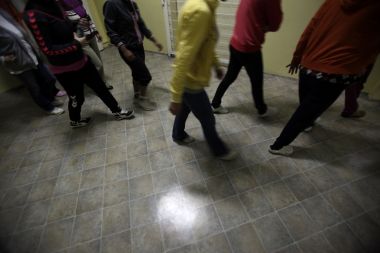Rotherham child abuse: how can we break the cycle of power and control?

Yesterday's report documenting the overwhelming failure of many services in Rotherham to respond to the sexual exploitation of mainly girls, but also boys, is horrific and makes for deeply disturbing reading.
"It is hard to describe the appalling nature of the abuse that child victims suffered. They were raped by multiple perpetrators, trafficked to other towns and cities in the north of England, abducted, beaten, and intimidated. There were examples of children who had been doused in petrol and threatened with being set alight, threatened with guns, made to witness brutally violent rapes and threatened they would be next if they told anyone. Girls as young as 11 were raped by large numbers of male perpetrators. This abuse is not confined to the past but continues to this day."
The failures of the systems designed to protect children span 159 pages. The conservative estimate is that more than 1,400 children have been sexually exploited.
Much has been made in the media of the concern that professionals felt unable to confront or address the abuse because the majority of perpetrators were from the South Asian community. Headlines about the failures being rooted in "political correctness" have dominated today.
The fact that sexist language and harrassment of women (very politically incorrect) has been reported from the professional and council meetings at the time of the abuse has been largely ignored. We have heard a lot about the perpetrators seeing young white girls as worthless and though this must be challenged, the report also states that girls from ethnic minority communities were abused. In addition, professionals failed "Pakistani-heritage women fleeing domestic violence, where a small number of councillors had demanded that social workers reveal the whereabouts of these women or effect reconciliation rather than supporting the women to make up their own minds."
The UK will express outrage at the actions of those men over there who have degraded and violated children, blaming incompetent services, harmful cultural perceptions and the vulnerability (and even the choices!) of the children who have been abused for what could be seen as an extraordinary situation in Rotherham. Perhaps individual Christians and churches will echo the horror about that situation over there adding moral outrage about the abuse suffered.
The reality is that Rotherham is not an extraordinary situation. Perhaps the only extraordinary aspect of it is that so much of the truth has been revealed. I have worked across the UK equipping practitioners to address exploitation and abuse with young people and everywhere I go there are stories of adult men violating children and services failing to respond effectively.
It is not race or poverty or children in care that are the common denominator in Rotherham; it is men. Men are overwhelmingly the perpetrators, girls and women are largely the victims. The roots of perpetration in Rotherham may be perceived as a purely South Asian issue, but in reality it is about power, domination and a view that girls and women are ornaments with holes. That's not cultural, it is taught across our society, in adverts, songs, and films and throughout history.
As Christians we can see Rotherham as something terrible, but distant; yet 72 per cent of girls across the UK (and in our church community) will be emotionally abused by a boyfriend by the age of 16, 32 per cent will be sexually abused and 25 per cent will be physically abused. And our current relationship education in church is so inadequate that it rarely even mentions what consenting to sex looks like.
There is a spectrum of oppression faced by girls and women, sexual exploitation, domestic abuse, street harrassment, barriers to promotion and lack of equal pay are issues that all affect women to a greater extent than men. In church, we often see the perpetuation of this injustice through teaching which focuses on women's purity and submission to a much greater degree than men's. I have spoken to girls and women who have been blamed by their church for the abuse they suffered, and told to forgive, while no consequences have been put in place for the abuser.
We can spend our time denouncing the crimes of those men over there while ignoring the problems for our church family over here.
Are we creating a community in which children and young people can be honest about the ways they have been hurt? What would happen if they disclose that it is our church leader, or youth group leader who is the perpetrator? Will we still believe them? Are we willing to acknowledge the ways we have perpetuated women being seen as ornaments? Are we willing to repent of our complicity in the system that sees 1,400 children abused and ignored or will we maintain our innocence; we "who have eyes but do not see, who have ears but do not hear" (Jeremiah 5:21).
Natalie Collins is the creator of DAY, a youth abuse and exploitation education programme. She set up Spark and works to enable individuals and organisations to prevent and respond to male violence against women.











